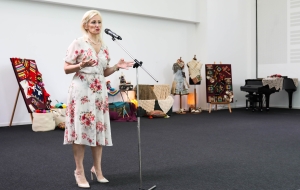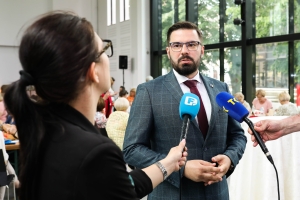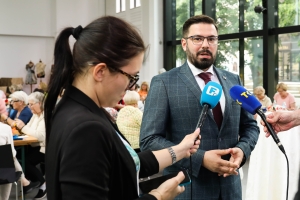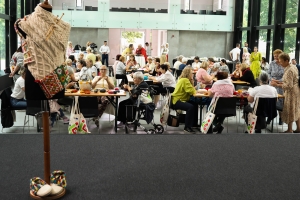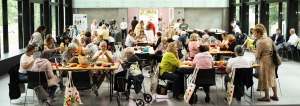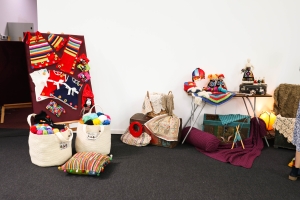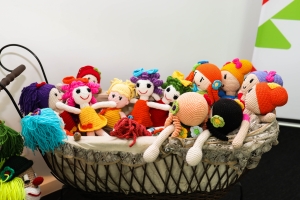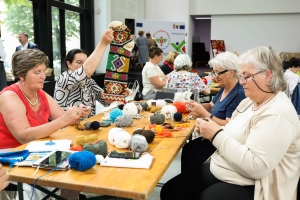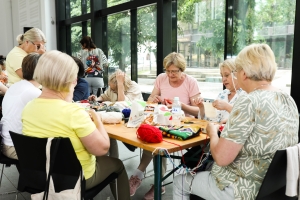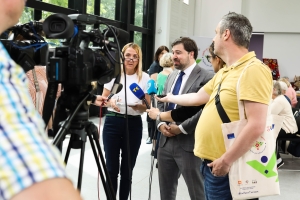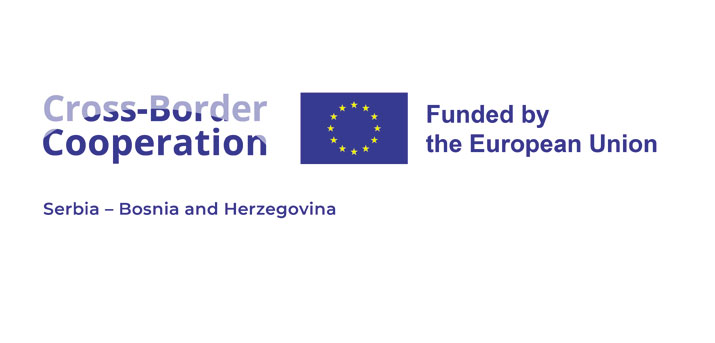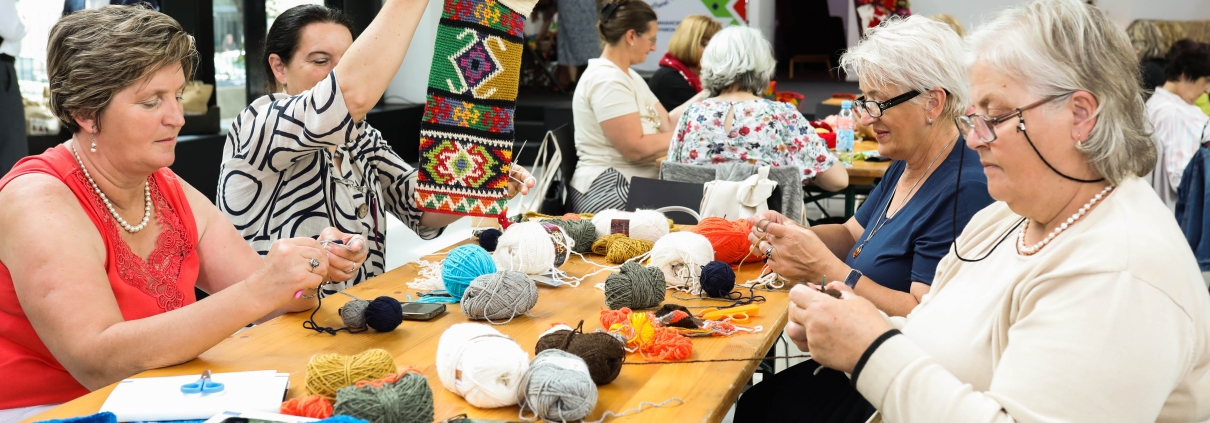Tuzla, May 22, 2024 – Today, 40 exhibitors from Bosnia and Herzegovina and Serbia showcased their craftsmanship in traditional handcraft techniques – knitting and crocheting – during Diplomatic Day, held as part of the first Handicraft Colony in Tuzla. The event featured motifs from folk costumes characteristic of the border areas of both countries, with the original design originating from a woven rug.
The Colony was organized by the Association of Bosnian Handicrafts BHCrafts in partnership with NALED and the Ethno Network from Serbia within the project “Together for Cultural Tourism – Cross-border Cooperation for Better Socio-economic Development and Preservation of Traditional Crafts,” implemented with financial support from the European Union.
Alma Halilović, Assistant Mayor of Tuzla for Economic Development, Entrepreneurship, and Agriculture, emphasized the importance of such initiatives in improving the economic position of women and raising awareness about the significance of cultural heritage. “We are honored that the City of Tuzla has been chosen to host the first Handicraft Colony and that the guardians of our tradition are actively participating in this project. This is an opportunity to present and promote the richness, beauty, and splendor of our national craftsmanship,” Halilović added.
Ferdinand Koenig, Head of Communications and Spokesperson for the EU Office in BiH, highlighted the importance of preserving and promoting traditional handicrafts and artisanal works. He added that this project is “an example of effective initiatives realized through EU IPA funds, showcasing the immense benefits of cross-border cooperation that, in turn, fosters regional integration.” Koenig concluded that “the EU remains committed to helping BiH achieve its full tourism potential, enabling visitors to experience the unique culture and traditions that BiH has to offer.”
Denis Bećirović, Minister of Trade, Tourism, and Transport of the Tuzla Canton, stressed that the event is significant for boosting local entrepreneurship and cultural tourism development. “The development of cultural tourism represents a key strategy for diversifying the tourist offer of BiH and valuing the wealth of traditional culture and heritage. Cultural and ethno forms of tourism attract an increasing number of visitors seeking an authentic experience and products, as well as the opportunity to learn about local traditions, lifestyles, and ancient crafts. Therefore, promoting tourism that supports the preservation of these crafts can aid in the economic prosperity of local communities.”
Violeta Jovanović, President of the Ethno Network and Executive Director of NALED from Serbia, emphasized that organizing this colony sends an important message of mutual support and solidarity among women for the benefit of our region. “Women are the bearers of the highest virtues of these areas, guardians of memories and heritage, symbols of hope and reconciliation. With adequate support, they can be the drivers of successful coexistence and development in all areas of life, from culture to the economy,” Jovanović added.
Lejla Radončić, Executive Director of BHCrafts, explained that this project supports at least 60 women from 18 municipalities in the two countries and aims to promote their joint work and establish bridges of cooperation. “The Colony has brought together women from various parts of BiH and Serbia to create handicrafts with motifs characteristic of our region, using symbols that connect us. This project strongly supports the empowerment and improvement of the economic position of women, primarily in rural areas. As a final result, we will have joint products made in both countries,” Radončić concluded.

